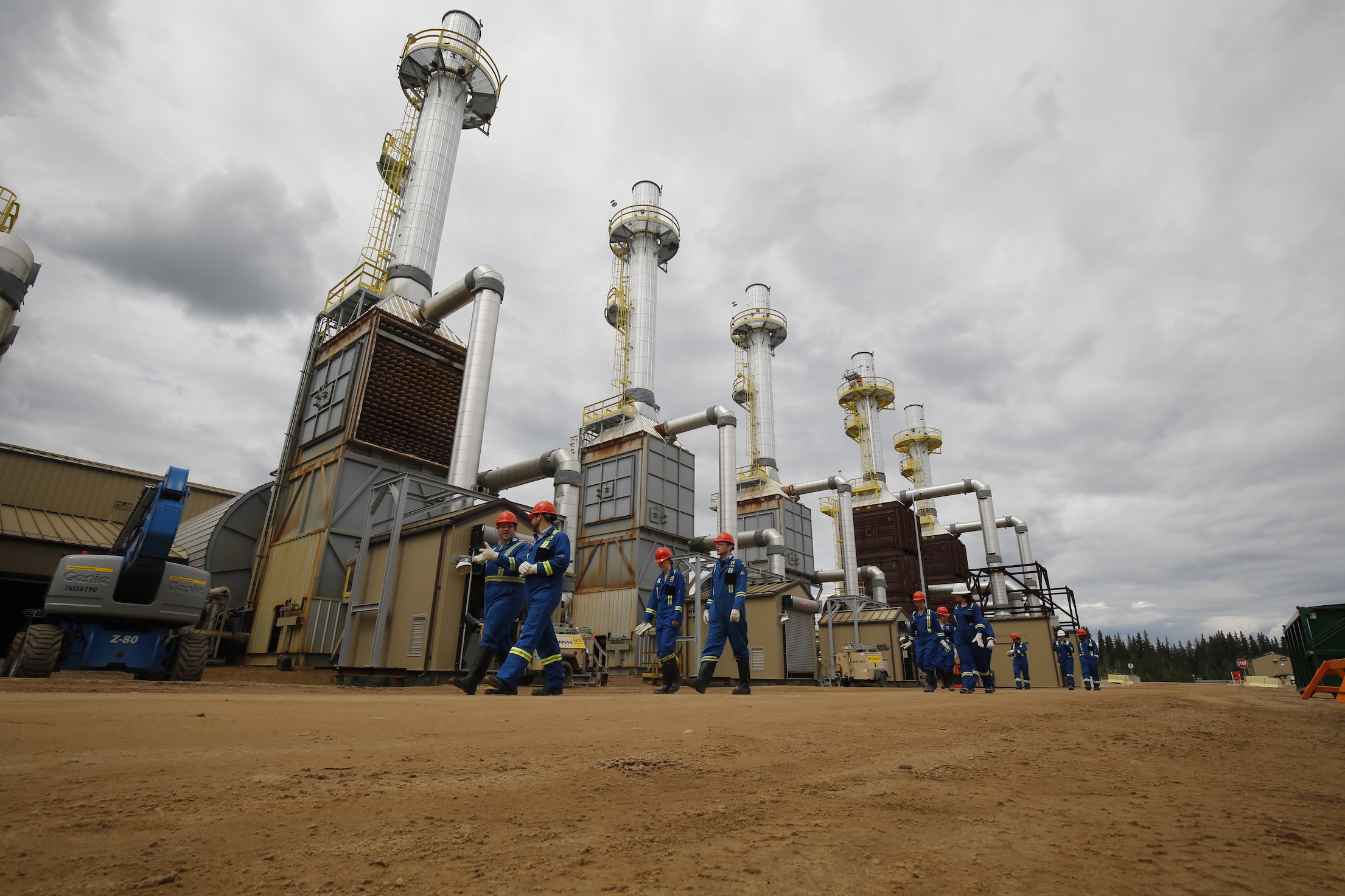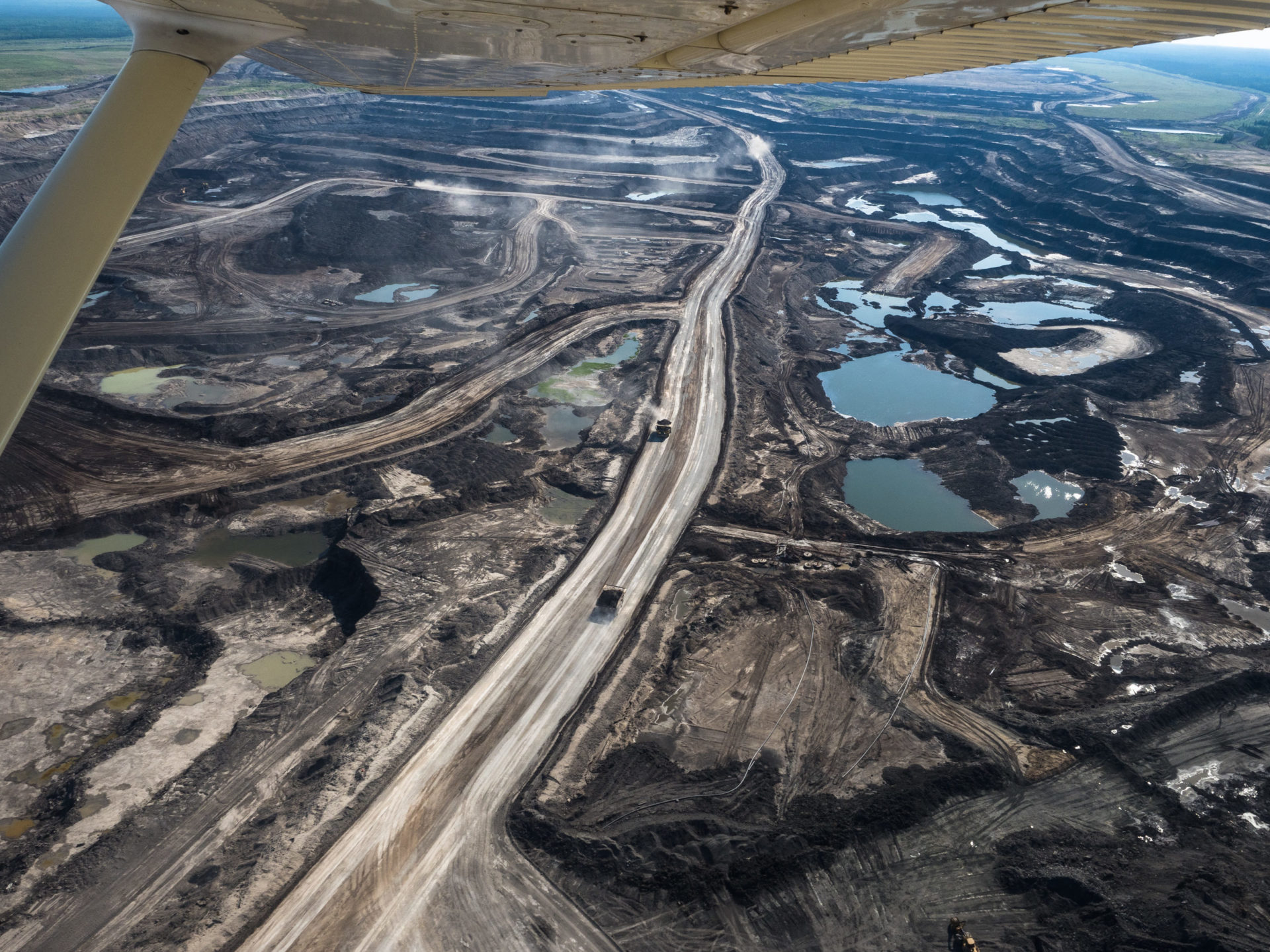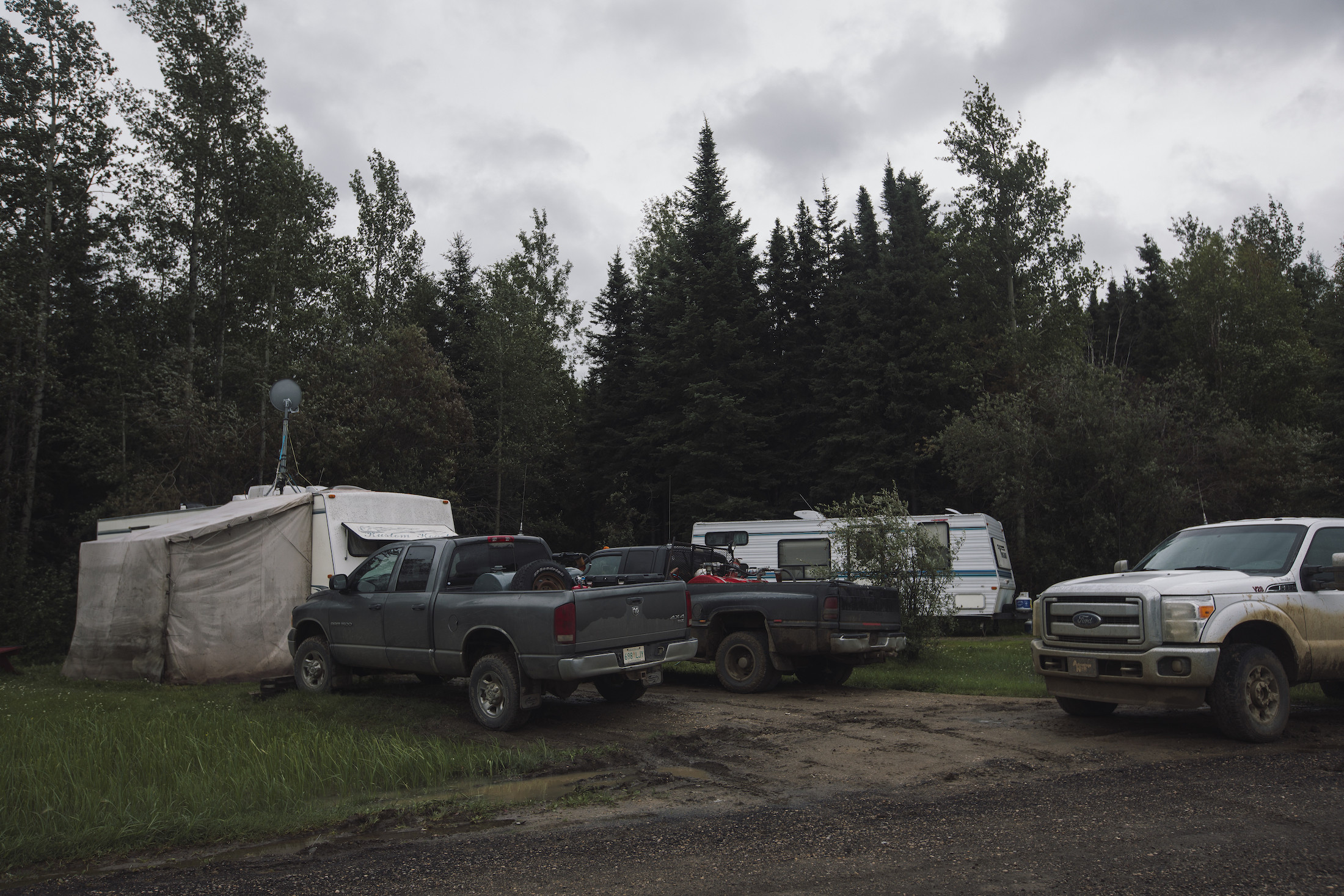
5 things to know about Winnipeg’s big sewage problem
115 billion litres, 70 years to fix, $5.5 billion in lawsuits
Content warning: This article contains mentions of suicide.
Chris Malmberg knows seven people who have taken their own lives in the past five years.
Since the price of oil nosedived in 2015, the industry has weathered hard years marked by layoffs and job losses. Coupled with the crippling onset of the COVID-19 pandemic, which at one point forced the price of oil below $0 per barrel, Malmberg said there isn’t a lot of optimism out there about the future of the industry.
“There’s just no rainbow. There’s no real light at the end of the tunnel,” he said.
Malmberg, a 20-year veteran of the industry who currently works in downtown Calgary selling completion services, believes if any other industry faced the same number of suicides and mental health problems as oil and gas, it would be considered a crisis.
“Our industry is so volatile. You’ve got your peaks and you got your lows, and we know that. But this has been going on for five years. There are guys that haven’t worked for three years,” he said.
Alberta’s oil industry has been struggling for years. While the provincial economy has long been dependent on oil and gas, riding out booms and busts, in 2015 the price of oil crashed to less than $40 a barrel. The COVID-19 pandemic has made that oil recession worse, says Malmberg — many employees are facing the reality they may never work in oil and gas again. Many have already left the industry or been forced out of it; he has watched familiar faces of friends and colleagues disappear from Calgary’s streets as the oil price crisis dragged on.
“Back in the day, when times were good, I couldn’t walk more than 10 feet without running into somebody I knew. And now, you walk downtown Calgary and you’d walk for 15 minutes and not run into anybody you know.”
With the 2015 oil price collapse, Malmberg lost his own job. That, coupled with the end of nearly two decades of marriage, took a toll on his mental health.
“I personally went through a pretty dark time in my life,” he said. “Being unemployed and going through a messy divorce — there were some dark nights.”
Though he has found work in the industry since, Malmberg says there are many oilfield workers who can’t find jobs. Some are older; some have worked in the same field for 25 years and can’t find another job with just a Grade 12 education.
Those who have found work either in offices or out in the field face their own set of challenges.
“They’re out in the middle of nowhere, working in horrendous conditions,” Malmberg said, including frigid temperatures in the dead of winter. “There is a lot of addiction and there is a lot of alcohol involved.”

An oilsands workers camp, north of Fort McMurray, Alta. Remote working conditions can contribute to feelings of isolation for workers. Photo: Ashley Cooper / Cavan Images
Meanwhile, office workers face the threat of the industry’s turbulence claiming their jobs.
“There’s not one person sitting comfortably in a chair (in) downtown Calgary,” Malmberg said.
“It’s depressing.”
In PetroLMI’s 2019 labour market update, the organization estimated Canada’s oil and gas industry would close in that year on 52,200 jobs lost since 2014, a period of time during which the labour force also shrank by 19 per cent as jobs dried up and workers left the industry.
That market report states Canada’s oil and gas industry invested more than $80 billion in capital into the country’s economy in 2014. By late 2016, capital investment dropped to less than half that — about $38 billion. Although 2017 brought a minor rebound in investment to $43 billion, along with improving commodity prices, investment fell again in 2018 and was expected to fall to $32 billion in 2019.
The greatest impact of that reduced spending was expected to be felt in Alberta, which PetroLMI estimated would see a 28-per-cent decline in exploration and production capital expenditures, from about $17.7 billion to $12.8 billion.
Commodity prices continue to struggle as well. This past February, Alberta’s 2020-21 budget estimated oil prices would average out to $58 U.S. per barrel for West Texas Intermediate (WTI) for the year, but following the onset of COVID-19, the provincial government now estimates prices will hit $35.60 U.S.

Even before COVID-19 arrived in Canada, the Alberta oil industry was already in rough shape. In PetroLMI’s 2019 labour market update, the organization estimated Canada’s oil and gas industry would close in that year on 52,200 jobs lost since 2014. Photo: Todd Korol / Public Policy Forum / Flickr
The jobs crisis only deepened when the COVID-19 virus spread to Canada. The shutdown of provincial economies impacted 5.5 million workers across the country, according to Statistics Canada. In May, Alberta’s unemployment rate hit a high of 15.5 per cent. In August, it still sat at 11.8 per cent. For the past two months, Calgary has topped the charts for unemployment rates country-wide.
Ehsan Latif, an economics professor at Thompson Rivers University, said people who lose their jobs typically feel psychological impacts because their work is deeply tied to their self-esteem. A slumping economy drags the mental health of workers down with it.
Anxiety hits people whether they have a job or not: employed people often watch unemployment rates rise and worry their jobs will be the next to go.
“What (the employed) will do is they will try to work more or try to find another job,” Latif explained — many work longer hours or take on extra work to prevent being laid off or let go during a recession, while many others will start preparing their resumes in case they lose their current jobs.
Vincent Agyapong, a professor of psychiatry at the University of Alberta who works for the addiction and mental health unit for Alberta Health Services, said fluctuations in the economy contribute to the mental suffering of people in oil and gas. Working conditions contribute to those mental health problems as well, he added — factors such as the hyper-masculine culture in the oil and gas industry, and the use of substances to help cope with mental health problems, compound the mental health suffering of industry workers.
Agyapong worked as a clinical psychiatrist in Fort McMurray, where he conducted research on the mental wellbeing of oilfield employees that found referral rates for mental health services increases during a recession.
Through his research, Agyapong found men were more likely than women to seek out mental health supports during the recession in Fort McMurray — the opposite of what happens when times are good.
“There was actually a change in the demographics of those who are seeking mental supports,” he said.
“Those who traditionally or ordinarily are more stable become vulnerable because they probably have been impacted by the recession.”
Agyapong said many of the men seeking help at that time — and when the Fort McMurray wildfire struck — were getting help for personality disorders, which people usually have since childhood.
Men were either finding more time to access mental health services after the recession hit, or the recession was making their personality disorders more prominent, he said.
Agyapong said when men do reach out for help, they are often in a crisis situation, whereas women often reach out for help sooner.

Alberta’s oilsands north of Fort McMurray. Vincent Agyapong, a professor of psychiatry at the University of Alberta who works for the addiction and mental health unit for Alberta Health Services, said that men were more likely than women to seek out mental health supports during the recession in Fort McMurray — the opposite of what happens when times are good. Men were also more likely to be in a crisis situation when they did reach out for help. Photo: Louis Bockner / Sierra Club BC
In the early weeks of the COVID-19 pandemic, Agyapong organized the Text4Hope program launched by Alberta Health Services. That is a free program that sends daily supportive text messages to subscribers. The messages are based on cognitive behavioural therapy.
Eighty-eight per cent of subscribers are women; 12 per cent are men.
“You can see that men are not really people who, in the initial stages of a mental breakdown, would go and seek help compared to women. Women want to seek out appropriate help before things get worse, but by the time (a man) comes in, it’s a bad case and they need more support and more resources to get them back on track,” Agyapong said.
The suicide rate for men also increases when the economy crashes — particularly in the trades. In the wake of mass oilpatch layoffs, Alberta’s suicide rate in the first half of 2015 jumped 30 per cent compared to the previous year. Three hundred twenty-seven people took their own lives between January and June. Demand for counselling also increased, with the Calgary Distress Centre seeing an 80-per-cent increase in phone calls that year.
The oil and gas industry has a much higher amount of male employees than other industries. More than three quarters — 76 per cent — are men, compared to 55 per cent province-wide.
That demographic breakdown and a hyper-masculine culture contribute to higher substance use and suicide rates in oil and gas.
Psychologists say overall in society men may face more social and self-stigma if they feel they can’t cope with or manage their mental health situation on their own.
Simon Fraser University psychologist Dan Bilsker said one of the reasons men tend to suffer more is because they don’t share their concerns or distress.
“No one’s opening up about their issues. It’s like one of those things where everybody has enough problems and you don’t need to hear mine.”
“They’re often trying to keep it to (themselves) — not just keep your feelings to yourself, but don’t tell your own story,” Bilsker said.
He also says men are culturally taught to turn to alcohol, which makes mental health struggles worse instead of better.
Malmberg says that culture of silent suffering exists even after people leave the industry. While many people are suffering from the stress of losing their jobs, nobody directly talks about it.
“Everybody just smiles and waves. Everyone’s got their burdens in life right now in the oil and gas industry — you just grin and bear it. No one’s opening up about their issues. It’s like one of those things where everybody has enough problems and you don’t need to hear mine,” Malmberg said.
Pride factors into that as well — people don’t want to admit they are struggling financially after years of working, or that they didn’t save as much as they felt they should have during the good years, he added.
“Everyone kind of wants to just make everyone believe that everything’s OK and life is good,” Malmberg said.
Some go to desperate lengths to keep working, which take a toll on their families as well.

A campground where oil and gas workers live year round in Fox Creek, Alta. in July, 2018. Photo: Amber Bracken / The Narwhal
Shelley Meakin-Chamzuk, whose husband Ron works in the oil and gas industry, said her husband’s wage was cut in half when the pandemic struck. Watching him deal with that hurt her own mental health, as did caring for six kids while Ron had to work out of town.
“We’re just trying to survive, and it’s not the privileged life that I think a lot of people think it is,” Meakin-Chamzuk said.
“With my husband being away, and knowing his wife was sick, that was not easy on him. He’s very strong and very supportive … he never admitted it, but I know it was hard on him.”
Meakin-Chamzuk has lost three friends to suicide in the past year due to the economic downturn, losing their jobs and their concern over the direction their lives were headed. She said she is concerned about the men in her life.
Malmberg, while still working in the oil industry, has opened up a pet food business with his significant other: MOMMS Premium Pet Foods in Calgary.
The duo saw the writing on the wall about the industry’s future. Though he’s still involved in oil and gas, their new venture is going well so far, Malmberg said.
“Gradually over time I’m going to one day retire from the oil and gas industry, and I’ve got something to fall back on,” he said.
Jennifer Henderson is the Local Journalism Initiative Reporter for Great West Newspapers, covering rural Alberta issues.
If you or someone you know is struggling with mental health issues, you can call Alberta’s 24-hour mental health helpline 1-877-303-2642.
The addiction helpline can be reached at 1-866-332-2322 and is also available 24/7.
If you are having suicidal thoughts or you know someone who is, you can get help by calling the Canada Suicide Prevention Service at 1-833-456-4566 or by texting 45645.
Alberta’s community and social services helpline can be reached by dialing 211. The 24-hour distress line is 780-482-4357 (HELP).
The rural distress line for northern Alberta is 1-800-232-7288.
If you or someone you know is at risk of an immediate crisis, call 911.
Get the inside scoop on The Narwhal’s environment and climate reporting by signing up for our free newsletter. On a warm September evening nearly 15...
Continue reading
115 billion litres, 70 years to fix, $5.5 billion in lawsuits

Climate change, geopolitics and business opportunities power a blue economy

10 billion litres of sewage are dumped into Winnipeg’s lakes and rivers each year. Some...
